全面建成小康社会:中国人权事业发展的光辉篇章(双语全文)
新华网 2021-08-12 15:14

国务院新闻办公室8月12日发表《全面建成小康社会:中国人权事业发展的光辉篇章》白皮书。
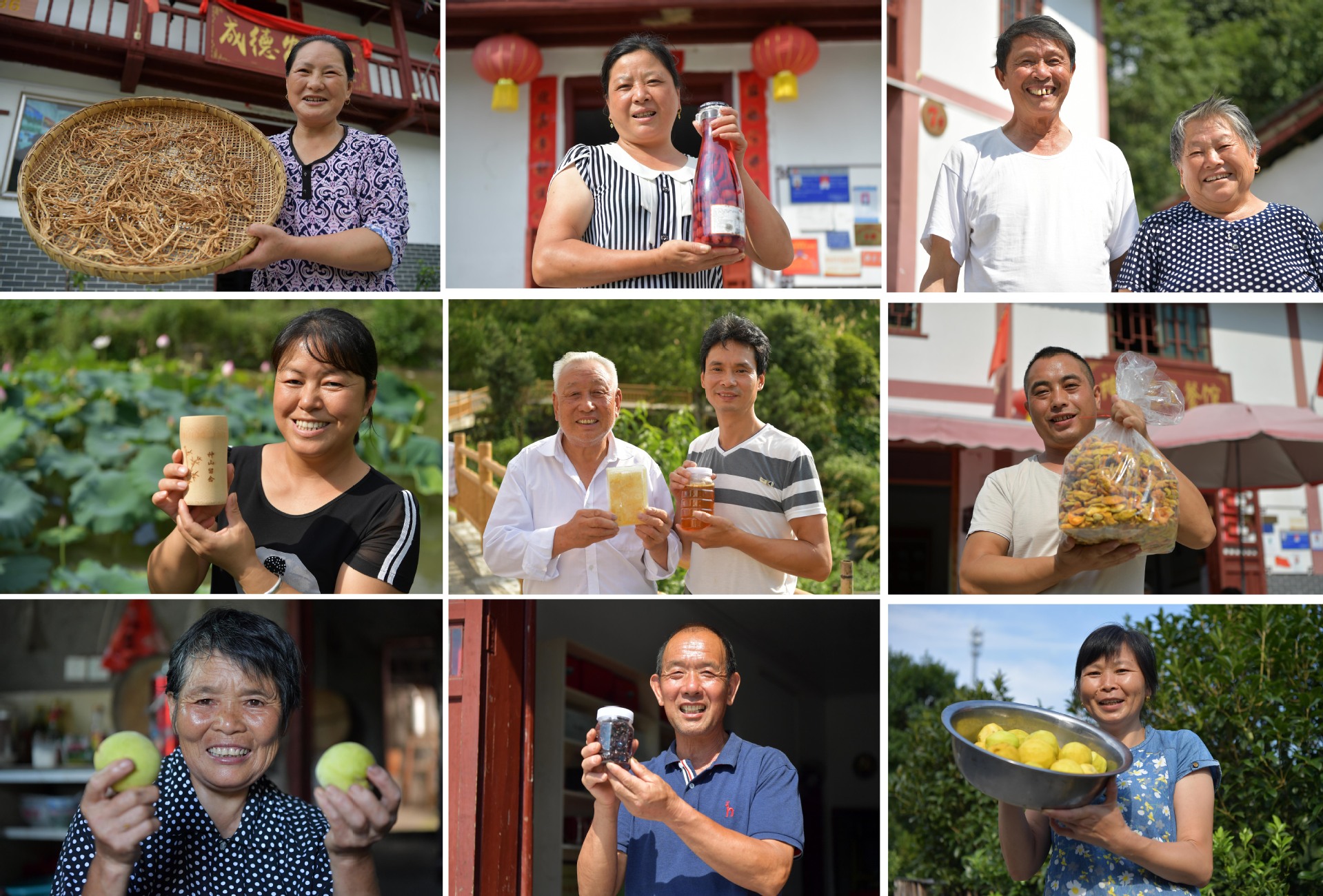
双语全文如下:
全面建成小康社会:中国人权事业发展的光辉篇章
Moderate Prosperity in All Respects: Another Milestone Achieved in China’s Human Rights
中华人民共和国
国务院新闻办公室
2021年8月
The State Council Information Office of
the People’s Republic of China
August 2021
目录
Contents
前言
Foreword
一、全面建成小康社会开辟人权事业新境界
I. Achieving Moderate Prosperity and Advancing Human Rights
二、消除绝对贫困实现基本生活水准权
II. Ending Extreme Poverty and Securing the Right to an Adequate Standard of Living
三、以发展促人权增进经济社会文化权利
III. Boosting Human Rights with Development and Securing Economic, Social and Cultural Rights
四、实行良法善治维护公民权利政治权利
IV. Protecting Civil and Political Rights with Law and Governance
五、促进社会公平保障特定群体权益
V. Promoting Social Equity and Protecting the Rights of Special Groups
结束语
Conclusion
前言
Foreword
人权是人类文明进步的成果和标志,尊重和保障人权是现代文明的基本精神,也是中国共产党人的不懈追求。中国共产党是为人民谋幸福的政党。中国共产党的100年,是争取人权、尊重人权、保障人权、发展人权的100年,极大提高了中国人权文明水平,丰富发展了人类文明多样性。
Human rights are an achievement of humanity and a symbol of progress. Respect for and protection of human rights is a basic principle of modern civilization, and the unwavering goal of the Chinese Communists. The Communist Party of China (CPC) seeks happiness for the people. Its 100-year history records its efforts in fighting for, respecting, protecting, and developing human rights. Owing to its efforts, human rights in China have greatly improved, adding diversity to human civilization.
全面建成小康社会是中国共产党和中国政府为增进人民福祉、提高全体人民人权保障水平、实现国家现代化而实施的一项重大国家发展战略。2021年7月1日,中共中央总书记、国家主席习近平在北京代表党和人民庄严宣告,“我们实现了第一个百年奋斗目标,在中华大地上全面建成了小康社会,历史性地解决了绝对贫困问题,正在意气风发向着全面建成社会主义现代化强国的第二个百年奋斗目标迈进”。这是中国人权进程中一个激动人心的时刻、一个载入史册的时刻、一个继往开来的时刻。
Building China into a moderately prosperous society in all respects is a major strategy designed by the Party and the government to improve the wellbeing of the people, better protect human rights, and achieve modernization of the country. On July 1, 2021, Xi Jinping, general secretary of the CPC Central Committee and president of China, solemnly declared in Beijing on behalf of the Party and the people that we had realized the first centenary goal of building a moderately prosperous society in all respects. This means we have brought about a historic resolution to the problem of extreme poverty in China, and we are now marching with confidence towards the goal of building China into a great modern socialist country in all respects. It is an exciting moment for human rights in China, a moment that will go down in history, and a moment from which we will forge ahead into the future.
全面建成小康社会是中国共产党不忘初心、牢记使命的真实写照。在中国共产党的领导下,中国人民奋力决胜全面小康,最终实现了从贫困到温饱到总体小康直到全面小康的历史跨越。
The realization of all-round moderate prosperity shows that the CPC has stayed true to its original aspiration and founding mission. Under the CPC leadership, the Chinese people worked hard in the final stage towards this goal, and finally completed the historic transformation from poverty to secure access to food and clothing, to a decent life, and finally to moderate prosperity.
全面小康是经济富裕、政治民主、文化繁荣、社会公平、生态良好的小康,是城乡区域均衡发展、惠及全体人民的小康,是切实尊重和全面保障人权的小康。中国全面建成小康社会,夯实了人权基础,丰富了人权内涵,拓宽了人权视野,意味着人权的全面发展和全民共享,谱写了中国人权事业的新篇章,创造了人类尊重和保障人权的奇迹。
Moderate prosperity in China is evident in all respects: a buoyant economy, political democracy, a flourishing culture, social equity, and healthy ecosystems; balanced development between urban and rural areas to the benefit of all the people; and high respect for and comprehensive protection of human rights. China’s realization of moderate prosperity serves as a solid foundation for human rights, and takes a deeper and broader perspective on this cause. It represents comprehensive progress in ensuring universal human rights in China, and a new contribution to the world’s human rights cause.
一、全面建成小康社会开辟人权事业新境界
I. Achieving Moderate Prosperity and Advancing Human Rights
在中国,“小康”是一个古老的词汇,指免于劳苦和匮乏,生活水平处于温饱与富裕之间的一种较为殷实幸福的状态。享有安宁、祥和与幸福的生活是人们自古以来的美好愿景。改革开放之初,中国根据自身具体国情提出建设小康社会的目标,蕴含着关注和增进民生福祉、保障和促进人权的丰富内涵。全面建成小康社会开辟了全面保障人权的新时代。
Xiaokang, an ancient term in China, refers to a status of moderate prosperity whereby people are neither rich nor poor but free from want and toil. It has been the people’s wish since ancient times to live a life of peace, stability and happiness. In the early period of reform and opening up, based on its own national conditions, China articulated the goal of building a moderately prosperous society, which demonstrated its concern for improving the people’s wellbeing, and its commitment to protecting and promoting human rights. The realization of all-round moderate prosperity ushers in a new era for the protection of human rights in all respects.
1.全面建成小康社会的光辉历程
1. The Journey to Moderate Prosperity
建设小康社会是20世纪80年代以来,中国共产党领导中国实现国家富强、民族复兴、人民幸福的宏伟战略。基于对中国发展实际的分析和判断,中国共产党提出坚持以经济建设为中心,通过经济发展带动整个社会进步。从那时起,“小康”“全面建设小康社会”“全面建成小康社会”成为中国共产党和中国政府的阶段性奋斗目标。
Building a moderately prosperous society has been a grand strategy since the 1980s, designed to realize national prosperity and rejuvenation, and ensure the people’s wellbeing in China under the leadership of the CPC. Based on its analysis and judgment of China’s realities at that time, the CPC decided to focus on economic development to drive social progress on all fronts. Since then, the CPC and the Chinese government have made it a key goal to build a moderately prosperous society by stages.
1979年12月,邓小平提出建设“小康之家”的设想,创造性地借用“小康”这个富有中国传统文化特色的概念来表述“中国式的现代化”的重要内容与目标。1982年中共十二大报告明确,从1981年到20世纪末的二十年,力争使全国工农业的年总产值翻两番,解决人民的温饱问题。1992年中共十四大报告指出,11亿人民的温饱问题已经基本解决,正在向小康迈进。
In December 1979, Deng Xiaoping presented the vision of building a xiaokang society. The reference to xiaokang grounded the goal of China’s modernization firmly in traditional Chinese culture. The report to the 12th CPC National Congress in 1982 defined the goal to quadruple the annual gross output value of industry and agriculture and secure the people’s basic needs in two decades from 1981 to the end of the 20th century. The report to the 14th CPC National Congress in 1992 stated that the country had ensured the basic needs of 1.1 billion Chinese people and was moving on towards xiaokang.
2002年中共十六大报告宣告,“人民生活总体上实现了由温饱到小康的历史性跨越”,并进一步提出“全面建设小康社会”的目标:在本世纪头二十年,集中力量,全面建设惠及十几亿人口的更高水平的小康社会,使经济更加发展、民主更加健全、科教更加进步、文化更加繁荣、社会更加和谐、人民生活更加殷实。
The report to the 16th CPC National Congress in 2002 declared that on the whole the people had made a historic leap from having only adequate food and clothing to leading a life of moderate prosperity, and set forth the goal of building a moderately prosperous society in all respects: In the first two decades of the 21st century, China would build a society of moderate prosperity of a higher standard in an all-round way to the benefit of over one billion people; China would further develop the economy, improve democracy, advance science and education, promote cultural prosperity, foster social harmony, and upgrade the quality of life for the people.
2012年中共十八大报告进一步提出“确保到2020年实现全面建成小康社会宏伟目标”,实现经济持续健康发展,人民民主不断扩大,人权得到切实尊重和保障,文化软实力显著增强,人民生活水平全面提高,资源节约型、环境友好型社会建设取得重大进展。2017年中共十九大报告提出决胜全面建成小康社会,要求紧扣中国社会主要矛盾变化,统筹推进经济建设、政治建设、文化建设、社会建设、生态文明建设,攻坚克难,使全面建成小康社会得到人民认可、经得起历史检验。
The report to the 18th CPC National Congress in 2012 laid out the goal of building a moderately prosperous society in all respects by 2020. According to this report, China’s economy would maintain sustained and sound development, people’s democracy would be expanded, and human rights would be fully respected and protected. The country’s cultural soft power would be improved significantly. Living standards would be raised. Major progress would be made in building a resource-conserving and environmentally friendly society. The report to the 19th CPC National Congress in 2017 pointed out that to succeed in building a moderately prosperous society in all respects, China must strive against all difficulties to promote coordinated progress in the economic, political, cultural, social and eco-environmental fields in light of the current principal challenge facing the country, so that the moderately prosperous society it builds earns the people’s approval and stands the test of time.
2021年7月1日,中共中央总书记、国家主席习近平在北京代表党和人民庄严宣告,在中华大地上全面建成了小康社会。
On July 1, 2021, Xi Jinping, general secretary of the CPC Central Committee and president of China, declared on behalf of the Party and the people that China had realized the goal of building a moderately prosperous society in all respects.
小康社会的全面建成,标志着中华民族伟大复兴中国梦迈出关键一步,实现了中国共产党和中国政府向人民、向历史作出的庄严承诺。
This is a critical step towards the Chinese Dream of national rejuvenation, fulfilling the historic commitment of the CPC and the Chinese government to the people.
2.全面建成小康社会的人权内涵
2. Steps Taken to Protect Human Rights
全面建成小康社会的进程,也是中国人权事业全方位发展的进程,始终体现和包含着解放人、保障人、发展人的战略、目标和任务。
The route to all-round moderate prosperity coincides with comprehensive progress in human rights in China, which involves all the steps necessary to liberate, protect and develop the individual.
全面建成小康社会首先要保障生存权。生存是享有一切人权的基础。小康社会建设将解决温饱问题、保障生存权作为首要目标,不断满足人民日益增长的物质文化需要。在全面建成小康社会进程中,人民生活质量显著提高,衣食住行用都有较大改善,生存权保障水平稳步提升。
Prioritizing the right to subsistence. The right to subsistence comes first among all human rights. A moderately prosperous society takes it as the primary goal to secure adequate food and clothing and protect the right to subsistence, and takes further steps to meet the growing material and cultural needs of the people. Visible progress in securing basic needs and remarkable improvements in living standards are the natural results of building a moderately prosperous society in all respects.
全面建成小康社会必然要实现各类人权协调发展。全面小康强调保障物质文明、政治文明、精神文明、社会文明、生态文明建设成果惠及人民。坚持人权相互依存、不可分割的基本原则,既保护经济社会文化权利,又保障公民人身权、人格权、财产权和民主政治权利,全方位增进各类人权和基本自由。
Realizing the coordinated development of all human rights. A moderately prosperous society emphasizes economic, political, cultural, social, and eco-environmental progress to benefit the people. It upholds the basic principle of interdependence and indivisibility of human rights. To advance all human rights and fundamental freedoms in all respects, it protects economic, social, and cultural rights, political and democratic rights, personal rights, personality rights, and property rights.
全面建成小康社会就是要促进所有人的人权。全面小康,本质上是全民共享人权的小康。在全面建成小康社会的历史进程中,中国构建起机会公平、规则公平和权利公平的社会公平体系,切实保障人民平等参与发展、共同促进发展、共享发展成果。中国共产党和中国政府坚持人权主体的普遍性,确保全面小康路上不让一个人掉队;坚持共同富裕方针,通过一部分人先富带动全体人民共富,让发展成果平等惠及全民,实现分配正义;坚持法律面前人人平等和不歧视原则,确保全体公民不分民族、种族、性别、职业、家庭出身、宗教信仰、教育程度、财产状况、居住期限,一律、无差别地享有人权,受到同等的尊重;坚持保护弱势群体,以坚定决心、精准思路、有力措施,举全社会之力,向绝对贫困发起总攻,重点保障贫困地区、贫困人口的基本权利。
Advancing the rights of all people. All-round moderate prosperity means all the people enjoy human rights. In the process of creating this society, China has built a system guaranteeing social equity with equal opportunities, equal rules and equal rights, in which all can participate in, contribute to, and enjoy development.
The CPC and the Chinese government uphold the universality of human rights and ensure that no one is left behind on the way towards prosperity. Holding fast to the principle of common prosperity, they allowed some people to create wealth as a first step to bringing prosperity for all. They have ensured just distribution in order that the fruits of development benefit all people equally. They adhere to the principles of equality before the law and non-discrimination, making sure all citizens are entitled to equal rights and respect without discrimination of any kind, such as ethnicity, race, gender, occupation, birth, religion, education, property, or length of residence. Committed to protecting the basic rights of vulnerable groups, particularly poor people in impoverished areas, they have eliminated extreme poverty by applying strong determination, clear thinking, effective measures, and all resources available.
3.全面建成小康社会的人权意义
3. Reinforced Groundwork for Human Rights
人权是善治之本。中国全面建成小康社会,始终坚持尊重人权、保障人权、促进人权的价值遵循,将增加人民的获得感、幸福感、安全感作为出发点和落脚点。
Human rights are the foundation of good governance. China has always been committed to respecting, protecting and advancing human rights, and increasing the people’s sense of fulfillment, happiness and security. The route to moderate prosperity has reinforced the groundwork for human rights.
全面建成小康社会为人权保障与发展奠定了坚实物质基础。在全面建成小康社会进程中,中国坚定不移贯彻新发展理念,保持经济长期快速增长,稳定解决了十几亿人的温饱问题;破除城乡二元结构,改革收入分配格局,人民收入水平不断提升;开展精准扶贫、精准脱贫,决胜脱贫攻坚,加强对各类弱势群体的保护;基本建立覆盖全民的社会保障体系,人民健康和医疗卫生水平大幅提高;建设完善公共文化服务体系,全面实现城乡免费义务教育,构建高效泛在的信息网络;加快生态文明建设,实施环境保护基本国策,污染防治力度加大,生态环境明显改善。全面建成小康社会,经济、社会、文化、环境权利更加公平可及,各类主体在经济、政治、社会和文化等领域的平等参与和平等发展,更加切实和顺畅便捷。
Providing a solid material foundation for protecting and developing human rights. In the process of building a moderately prosperous society, China has maintained its commitment to the new development philosophy. The economy has achieved long-term rapid growth and the basic needs of over one billion people have been met. The urban-rural divide has been resolved and the income distribution profile has been reformed to improve living standards. Targeted poverty reduction and eradication has achieved success, strengthening protection of all vulnerable groups. A social security system covering all the people is in place, with better medical services and a higher overall level of health. Public cultural services have improved. Free compulsory education has been realized in both urban and rural areas. An efficient and ubiquitous information network has been set up. With accelerated efforts to build an eco-civilization, a basic national policy of environmental protection has been implemented, measures to prevent and control pollution have intensified, and the eco-environment has notably improved. In a moderately prosperous society, economic, political, social, cultural and environmental rights are more equitable and more easily accessible to all people to ensure equal rights to participation and development in all fields.
全面建成小康社会为人权保障与发展奠定了坚实民主政治基础。坚持中国共产党领导、人民当家作主、依法治国有机统一,党的领导体制机制更加完善,人民代表大会制度、中国共产党领导的多党合作和政治协商制度、民族区域自治制度、基层群众自治制度稳步发展。社会主义民主政治制度化、规范化、法治化、程序化建设不断推进,民主形式更加丰富,民主渠道更加畅通,共建共享的社会治理格局初步构建,人民当家作主落实到国家政治生活和社会生活之中,公民权利更有保障,民主政治权利更加充分。
Providing a solid political and democratic foundation for protecting and developing human rights. In achieving moderate prosperity, China has ensured that the Party’s leadership, the people’s position as masters of the country and law-based governance form an indivisible whole. The institutions and mechanisms by which the Party exercises leadership have improved. The system of people’s congresses, the system of CPC-led multiparty cooperation and political consultation, the system of regional ethnic autonomy, and the system of community-level self-governance have developed steadily.
The institutions, standards and procedures of law-based socialist democracy have improved, with more diverse forms of democracy and wider democratic channels. A social governance model based on collaboration and common interests has taken shape and the principle of the people as masters of the country is put into practice in China’s political and social fields. Civil, political and democratic rights are better protected.
全面建成小康社会推动了人权法治保障持续加强。“国家尊重和保障人权”载入宪法,成为治国理政重要原则。全面推进依法治国上升为国家战略,保证宪法全面实施的体制机制不断健全,科学立法、严格执法、公正司法、全民守法深入推进,法治国家、法治政府、法治社会建设相互促进,中国特色社会主义法治体系日益完善,全社会法治观念明显增强。行政体制改革、国家监察体制改革、司法体制改革取得实效,权力运行制约和监督体系建设有效实施。人权保障法治化水平不断提升。
Strengthening legal protection for human rights. The Constitution stipulates that the state shall respect and protect human rights, which is an important principle in state governance. Advancing the rule of law has been made a national strategy. Systems and mechanisms to ensure the enforcement of the Constitution are improving. Further progress has been made to ensure sound lawmaking, strict law enforcement, impartial administration of justice, and the observance of law by all. Our efforts to build a country, government, and society based on the rule of law are mutually reinforcing. The system of socialist rule of law with Chinese characteristics has been steadily improved, and public awareness of the rule of law has risen markedly.
Good progress has been made in reforming the system of government administration, the national supervision system, and the judicial system. Effective measures have been taken to develop other systems to strengthen checks and oversight over the exercise of power. The role of the rule of law in protecting human rights has been enhanced.
全面建成小康社会培育了全社会尊重和保障人权的文化。全面建成小康社会,推动了中华优秀传统文化的创造性转化、创新性发展,社会主义核心价值观深入人心,公共文化服务水平不断提高,文化事业和文化产业蓬勃发展。全面建成小康社会,更好构筑了中国精神、中国价值、中国力量,文化自信得到彰显,国家文化软实力和中华文化影响力大幅提升。全面建成小康社会的过程,也是每一个人对自身价值、人格尊严和主体地位认识不断提升的过程,促进了尊重和保障人权文化氛围的形成。
Fostering a culture to respect and protect human rights throughout society. In building a moderately prosperous society, China has promoted the creative evolution of fine traditional culture, and rooted the core socialist values among the people. Public cultural services have been improved, with cultural programs and industries flourishing. Endeavors to achieve moderate prosperity have fostered a Chinese spirit, Chinese values, and Chinese strength, and cultivated stronger cultural confidence. China’s cultural soft power and the international influence of Chinese culture have increased significantly. The process of achieving moderate prosperity helps everyone improve the understanding of their own value, personal dignity and principal status, fostering a culture that respects and protects human rights.









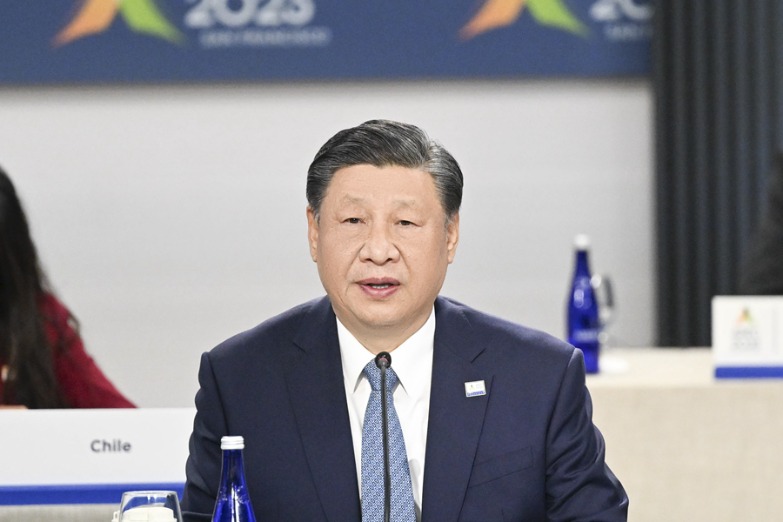
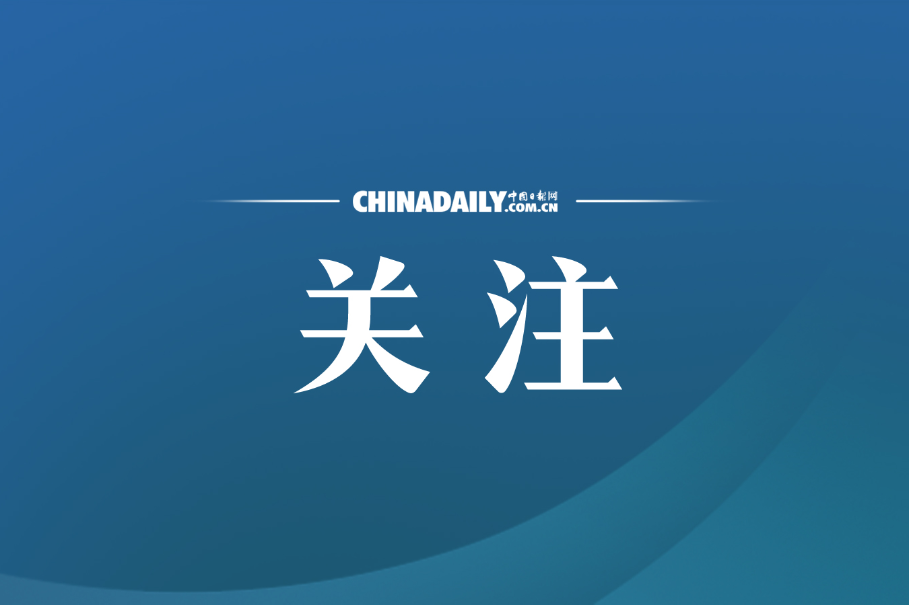
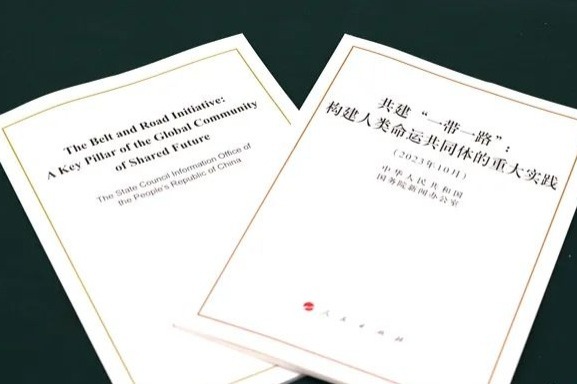
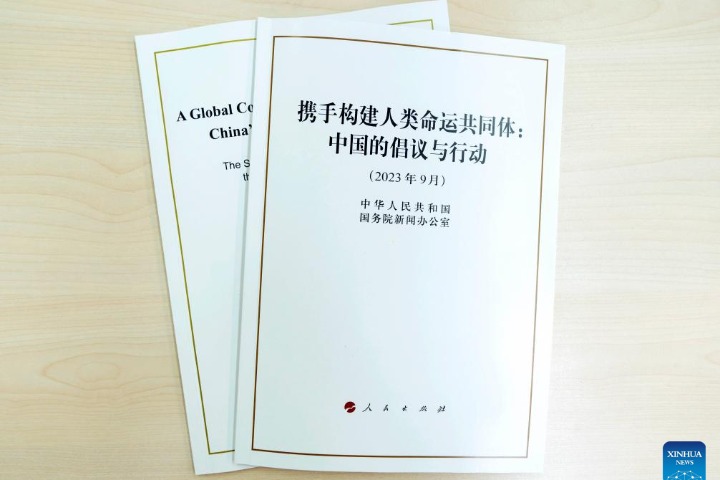
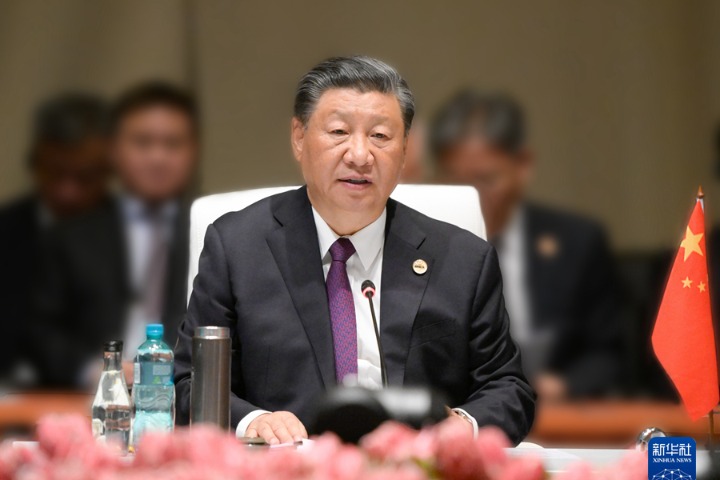



 英语点津微信
英语点津微信 双语小程序
双语小程序